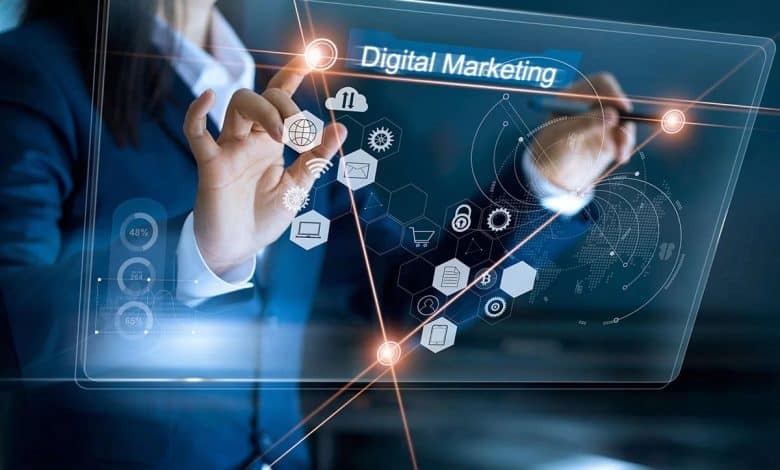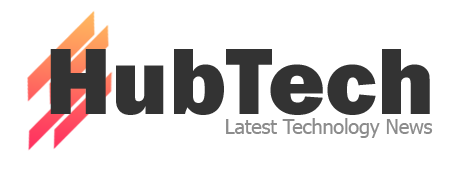Why Marketing Agencies Need to Adopt Modern Management Techniques

Marketing agencies are companies that help businesses with promoting their products and services. They consist of various marketing professionals who have strong ties to different industries.
Their role is to bring the business and the right demographic together through a variety of techniques. The marketing landscape has become increasingly complex and highly competitive, increasing the need for modern management within these organizations.
Modern Management
Traditional forms of management involve formal protocols and manual check-ins on every step of each process. This is simply too slow and cumbersome for today’s marketing demands.
Marketing agency project management software provides tools to automate very complex methodologies to handle the huge volume and quick turnaround time. This software also provides management insight that isn’t just handy, it’s necessary.
Increasing Complexity and Competition
The marketing landscape has seen an explosion of multiple channels, platforms, and tools in recent years, making it more complex. Keeping pace with the evolution of trends, technologies, and consumer behaviors is one challenge that marketing agencies currently face. The second challenge is the increasing competition among all these agencies clamoring to attract client attention. It’s simply not enough to be the best anymore, because every marketing agency should be the best. Communicating your unique value proposition has never been more crucial.
Benefits of Adopting Modern Management Techniques
Smooth execution of projects is the lifeblood of any marketing agency, and in order to make this happen, collaboration and communication have to be on point. Using project management software and collaborative tools will ensure that channels of communication are open, updates are occurring in real-time and work is executed by the team as a whole, these tools will keep teams on task, transparent, and more productive overall.
Modern management techniques not only make marketing managers more effective and capable, but can improve many different operational areas within a marketing agency.
Improved Workflow and Efficiency: Modern management techniques can be a boon to workflow and efficiency in your marketing agency. For example, agile project management allows for greater flexibility, iterative development, and the ability to quickly accommodate changes which can go a long way in ensuring your marketing agency’s workflow remains smooth. By breaking projects down into small tasks, channels and marketing techniques, agencies can increase productivity and eliminate bottlenecks that may occur.
Increased Employee Satisfaction and Retention: Modern management techniques put a large emphasis on employee satisfaction and work-life balance. By offering remote work and flexible schedules, allowing employees to avoid long commutes and to work in an environment most conducive to their success, supervisors can curate an optimal fit between client and worker. Additionally, with an emphasis on training and skill development, marketing agencies are better equipping themselves to offer employees something that will keep them on board. Greater employee satisfaction will result in better quality work at higher productivity. Higher quality employees will result in high quality service to clients and, in turn, help to keep clients coming back.
Better Client Satisfaction and Results: Taking advantage of these modern management techniques can also have a huge effect on client satisfaction as well as your ability to deliver them better results. By initiating modern management techniques such as the ones listed below, marketing agencies can assure clients that their projects will be done on time and within budget thanks to streamlined processes, improved project visibility, and resources that were allocated wisely. Additionally, the ability to quickly adapt to changes in market and optimize campaigns by relying on the insights produced by data and analytics allows an agency to show that they have the ability to deliver tangible results and are willing to do what it takes to ensure that happens for their clients.
Key Modern Management Techniques for Marketing Agencies
Agile Project Management:
Agile project management is an iterative approach to managing projects, emphasizing collaboration, adaptability, and, most importantly, customer feedback. The process starts by breaking down a project into smaller phases called sprints, each of which is planned by a cross-functional team working together. Throughout the project, customer feedback is used to adapt and improve. Agile project management enables marketing agencies to:
- Quickly respond to changes in the marketplace
- Work efficiently with multiple teams with only minor integration issues
- Continuously improve deliverables by adapting and refining them throughout the process
Implementation and Best Practices
To successfully implement agile project management in a marketing agency, it’s important to foster a culture of collaboration that goes beyond simply saying it’s important. Make sure that clear project goals and metrics are established, and provide the training and support ladder needed to use any new planning and tracking tools. Whether they’re run by paid staff, volunteers, freelancers, or a mix, the effective marketing project team needs to hold:
- Daily stand-up meetings
- Regular retrospectives
- Visual project management tools that communicate the project schedule, status, and goals to any team member at a glance
Remote Team Management
Remote work is becoming increasingly common. This trend has only increased due to recent events. Teams from marketing agencies are no exception to the rule.
Teams are separated by hundreds or even thousands of miles. While this distance certainly makes their cooperation much more difficult, there are some pluses. Remote work allows team members a greater degree of flexibility. This has had numerous positive effects, not least of which is that companies save a great deal in overhead expenses. Empowering a remote crew also allows managers to recruit the best talent from the largest possible pool.
With the increase in the need for remote team management, agencies are running into some of the most common issues that remote teams struggle with; communication barriers, team cohesiveness, and coordination come into play as top concerns. Agencies are managing in a variety of ways, typically leveraging communication & collaboration tools, setting clear expectations, and giving team members flexibility.
Tools & Technologies to Support Remote Teams in Marketing Agencies
There are countless tools and technologies that help support remote teams in marketing agencies. Project management software is helping enable a seamlessness to the work remote marketing teams are doing. Additionally automation tools are available as a solution that enable ESPs, CRMs, and other systems to be programmed to complete more of the repeatable elements of her job, hopefully increasing productivity.
The Importance of Data
The Importance of Data in Marketing
Data isn’t going anywhere in a marketer’s stack in the coming year. Data is necessary for modern agencies to derive insights on customer behaviors, identify trends over time, understand the effectiveness of campaigns, and more. This is to say nothing for the reports and performance insights that are delivered to clients. Despite this common knowledge, the continued onslaught of data has definitely made it a pressing issue for agencies.
Analytics & Reporting Tools
The tools that allow data to be captured and analyzed are those that are coming to marketers’ rescue. These analytics and reporting tools allow for data-pulls from a company’s website, social media, marketing automation software, and many other sources. A marketing agency’s interconnected toolset is only valuable when some sort of decision can be made or insight can be derived. This is where tools like Google Analytics, social media analytics platforms, Adobe Analytics, and marketing automation software really come into play. By leveraging the data coming from these platforms, an effective marketing strategy would allow the marketing agency to make an informed choice based on evidence down to the decimal, versus making an assumption.
Incorporating Data into Decision-Making Processes
Establishing Key Performance Indicators
Marketing agencies that want to incorporate data into their decision-making processes should begin by establishing key performance indicators (KPIs) that effectively track goals and objectives. After selecting KPIs, agencies can track and measure the relevant metrics, ensuring their data embodies the most accurate and comprehensive picture possible.
Using Data Visualizations to Tell a Story
Data is only as good as the insights that marketing agencies can draw from it; to achieve the latter, the first step is often to visualize the former. By delivering corporate performance metrics in the form of simple, easily digestible shapes, the human brain can process visualized data trends much more effectively than through reports, making it easy for marketing professionals to draw actionable conclusions.
Fostering a Data-Driven Culture
Most importantly, in an agency, decisions should be based on what the data says—for example, about user behaviors or product preferences—rather than on gut feelings. A data-driven culture in which decisions are purely empirical unites everyone, from the C-Suite to the most junior staff. I urge agencies to immerse themselves within it.
Continuous Learning and Development
Importance of Staying Updated
In today’s dynamic marketing landscape, it’s important for marketing agencies to remain competitive by staying updated with the latest trends, cutting-edge technologies, and best practices. Continuous learning and development empower agencies to offer innovative solutions and deliver tangible results for their clients.
Training and Development Programs
To nurture a culture of continuous learning, marketing agencies can introduce training and development programs for their employees. Opportunities like industry conference attendance, participation in webinars, or earning certifications empower marketing professionals to broaden their skills and stay relevant in a hyper-competitive global market.
Creating a Culture of Continuous Learning
Marketing agencies can cultivate a culture of continuous learning by encouraging knowledge sharing, offering access to resources for learning, and supporting employees’ professional growth aspirations. Regular performance evaluation and feedback sessions can help identify areas for improvement and tailor learning opportunities to cater to individual employee needs.
Overcoming Resistance to Change
Resistance to adopting a new management style is normal for employees comfortable working under the traditional management hierarchy. Avoid this resistance in the marketing agency by creating a strong case for change, soliciting participation from employees in the change process, and offering training and development programs that provide the support necessary for employees to be successful under the new management model.
Lack of Resources and Investment
Modern management requires heavy investments in technology and tools, training, and infrastructure. Agencies need to take stock of what resources are available to them and create a line-item budget that includes regular, ongoing investments.= It’s also wise to create a forecast on the return on investment that demonstrates the value that stakeholders will receive over a longer period as a result of the investment..
Alignment with Agency Goals and Values
It’s important that for a new management technique to benefit an organization, it must be implemented in a way that reflects and supports the goals and values of the marketing agency. Each agency is unique, and has a culture, strengths, weaknesses, and long-term objectives that need to be taken into account when evaluating this type of new technique. Working with these core values ensures that the process of integrating these changes into the agency culture and customer work is sustainable.
Utilize Marketing Agency Management Software
Adopting marketing agency management software can significantly streamline operations and increase efficiency. Software tools provide project management, resource allocation and time tracking, and reporting. By centralizing operations, automating repetitive tasks and providing insights into how projects are performing, agencies can increase efficiency and better service clients.
Types of Marketing Agency Management Software
This software is split into three customer-driven platforms that you can mix and match depending on your agency’s marketing techniques and customer acquisition. Unified marketing applications help create brand awareness for small businesses across major media. They are also equipped with standard, simplified marketing platforms for appointed resellers and consultants who routinely promote large advertiser marketing platforms.
The internal processes, monitoring platforms for project management software that caching agency professionals simply couldn’t catch or delight in without. This allows for very competitive campaign design while results return and are ready for customer delivery for faster ROI.
Marketing strategies have evolved over the years. Traditional approaches such as print ads and TV commercials have given way to SEO, social media marketing and influencer marketing. Adaptation is no longer a choice, but a necessity for marketing agencies to remain competitive and useful to clients.
Conclusion
To remain competitive and continue to deliver results to clients in the rapidly changing marketing landscape of today, marketing agencies must adopt modern management techniques. By doing this they can improve collaboration and communication, transform their workflow and efficiency, increase employee satisfaction and retention and ultimately achieve better client satisfaction and results. While not without its challenges — including resistance to change and limited resources — With proper planning and change management strategies, marketing agencies can adopt these new modern management techniques and embrace change as they look to remain competitive in the digital age. They should also consider utilizing marketing agency management software to automate processes, better adapt to changing market dynamics and to help drive further success in the future. This is a new era and marketing agencies around the world need to embrace the change and position themselves as leaders in the industry.




